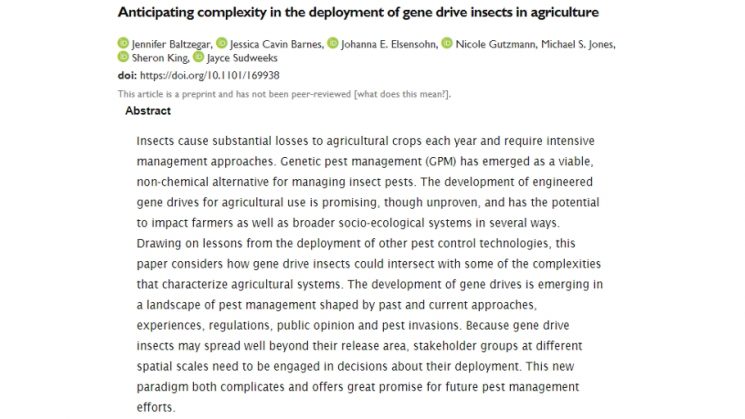
A new paper from GES IGERT students, to be published by the Journal for Responsible Innovation, is now available online.
Anticipating complexity in the deployment of gene drive insects in agriculture
Jennifer Baltzegar, Jessica Cavin Barnes, Johanna E. Elsensohn, Nicole Gutzmann, Michael S. Jones, Sheron King, Jayce Sudweeks
Abstract
Insects cause substantial losses to agricultural crops each year and require intensive management approaches. Genetic pest management (GPM) has emerged as a viable, non-chemical alternative for managing insect pests. The development of engineered gene drives for agricultural use is promising, though unproven, and has the potential to impact farmers as well as broader socio-ecological systems in several ways. Drawing on lessons from the deployment of other pest control technologies, this paper considers how gene drive insects could intersect with some of the complexities that characterize agricultural systems. The development of gene drives is emerging in a landscape of pest management shaped by past and current approaches, experiences, regulations, public opinion and pest invasions. Because gene drive insects may spread well beyond their release area, stakeholder groups at different spatial scales need to be engaged in decisions about their deployment. This new paradigm both complicates and offers great promise for future pest management efforts.
This is a pre-print of an accepted article that will appear in the Journal of Responsible Innovation.